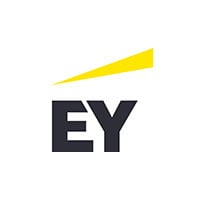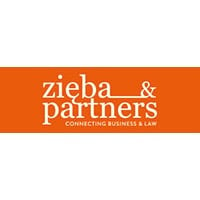

Head of legal and compliance department | Alliance Healthcare Romania




Elena Iacob
Head of legal and compliance department | Alliance Healthcare Romania
CEE Regional head of legal and compliance | Alliance Healthcare Romania
Head of legal and compliance | Alliance Healthcare Romania
Head of legal and compliance | Alliance Healthcare Romania
In the one year since I joined Alliance Healthcare Romania, I will reference projects I have been involved in, both in my previous role, as country legal manager of Coca-Cola Hellenic (May 2012 – August 2018) and in my current role (undertaken in September 2018).
In 2018, together with my team and with the great contribution of the public affairs and communication department, I translated into reality one of my dreams; to make compliance communication more effective, meaningful and fun for the entire organisation. The “GDPReady” campaign was about communicating to the employees the requirements of the new GDPR. This campaign has been further recognised during the PR AWARD Gala in 2018, winning the Silver Award of Excellence.
In 2019, in my current role, I contributed to further developing the compliance programme in place by designing compliance guidelines that were recognised as best practice across the organisation. In May 2019, my work was recognised by a local legal magazine for its contribution to Alliance Healthcare Romania.
I strongly believe that “soft skills” are crucial for any profession, not only for legal. As an in-house lawyer, the soft skills can make the difference between a consultant and a business-partner. Strong business-savvy, agility, the interpersonal skills to connecting to the people and work cross-functionally, the empathy to understanding people, the ethical values and on top of everything, being yourself, these can be the winning ingredients of a successful and valuable in-house lawyer.
One of the tools I use in my work is a dedicated platform for running risk assessment of the third parties the company is to do business with.
To build a solid savvy about the Romanian market, culture and political and economic environment overall, stay alert to changes in the legislative framework (that are quite frequent) and be ready to adapt.
A proven understanding of the industry where the client is acting (in general) and of the client’s business (specifically); tight collaboration with the in-house team to fully understand the business needs and expectations, and a shared cost-efficiency strategy.
FOCUS ON… COMPLIANCE
Back in 2016 I put my thoughts about compliance under the title “Compliance is definitely the name of the game!” Compliance is still the name of the game!
As then, I still believe that a long-term business strategy and sustainable growth should work hand-in hand with a consistent compliance mindset translated into an effective, robust compliance programme.
Companies with a culture of ethics and compliance, either in competition, anti-bribery and anti-corruption or data protection compliance, have a competitive advantage in the market, are more profitable and attractive for their customers and they are also respected by their employees. As we can see in legislative developments, laws are more and more providing for sanctions based on percentage out of the company turnover, or on high-level fines as absolute amounts.
It is not only this financial risk that the companies might face, but it is also the reputational risk, especially in today’s world when the information is easily available to anyone. The negative consequences of a bad reputation are quite intuitive: (i) loss of consumers’/clients’ trust (“would I buy products from a non-compliant company?”; (ii) loss of investors’ interest and trust (“would I invest in a company that doesn’t have a compliance culture embedded in its business?”; (iii) potential negative stock exchange impact in the case of listed companies.
A compliance programme is definitely a must-have to support a sustainable business growth!
A compliance programme has to be tailored to the company’s needs and activities. This combines the policies and regulations and the tech support. Technology has an important role to play and the tech tools should complement the “man work” and add value in the risk assessment process.
Prevention is the main role of an effective and robust compliance programme. However, in some jurisdictions, such as Romania, when it comes about the compliance with the competition laws and regulations, the implementation of a compliance programme may bring the benefit of a reduction
of the level of the fines that potentially may be applied in the worst-case scenario of a non-compliance case.
Compliance programmes may vary from company to another, from industry to another. An effective compliance programme should address at least the following essentials: A regular training programme with the majority of the employees, not only with the senior management team, followed by regular e-learning exercises; a comprehensive compliance manual drafted in simple straightforward way based on examples from the case-law of the European Commission and other local authorities; regular internal updates on new case-law and trends, new pieces of legislation or amendments; periodic audits and key metrics behind.
Compliance definitely starts with the tone from the top, but this is not enough. Organisations have to make sure that compliance is embraced by the team members and its ultimate goal is truly understood by everyone. A consistent compliance programme is also about understanding that an ethical business approach is more likely to bring sustainable growth on a long term, while increasing the employee sense of belonging.
A healthy organisational culture represents an imperative for today’s economic well-being of a company and a key objective of the legal and compliance function. This is not something in one’s hands. This is a cross-functional “game” that brings together other organisational functions, as public affairs and communication department or the human resources department (developing consistent induction programmes where to address compliance trainings for the new employees).